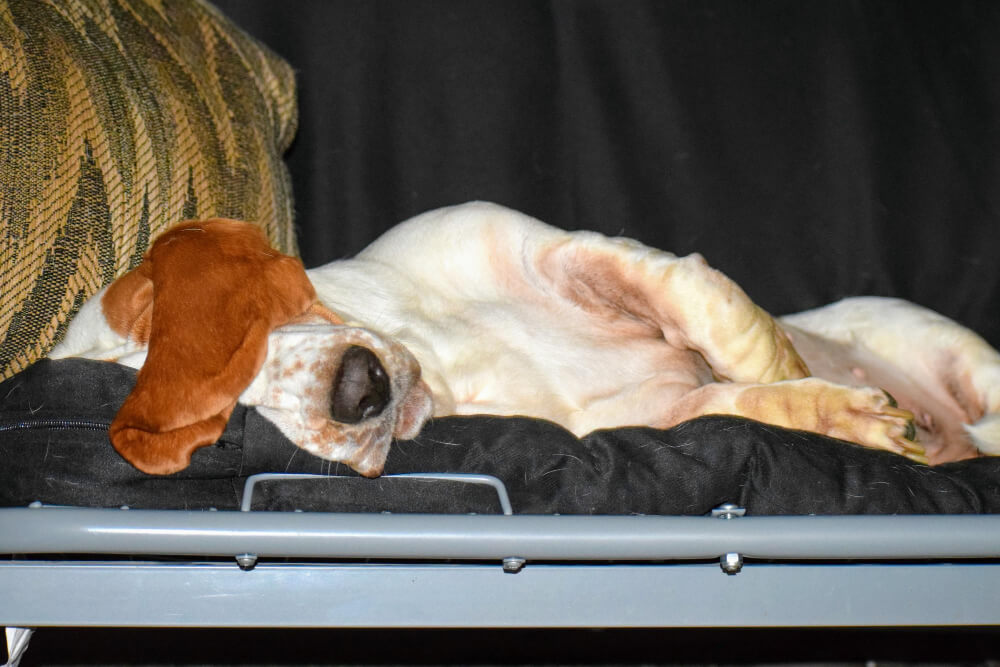Chronic Wasting Disease (CWD) is a mysterious and often misunderstood condition affecting certain wildlife, particularly deer, elk, and moose. With the rise of awareness about this disease, pet owners may wonder, Can dogs get chronic wasting disease? It’s important to address these concerns with accurate information so that you can understand the risks, what to look out for, and how to protect your canine companions. In this article, we will explore the link between dogs and CWD, the potential risks, and what pet owners can do to stay informed.

What is Chronic Wasting Disease (CWD)?
Chronic Wasting Disease is a prion disease that primarily affects cervids—deer, elk, moose, and reindeer. It is caused by abnormally shaped proteins, called prions, that attack the brain, leading to gradual and irreversible damage. Symptoms can include drastic weight loss, behavioral changes, drooling, and lack of coordination. The disease is always fatal, and unfortunately, there is no cure.
CWD is contagious among cervids and can spread through direct contact with bodily fluids (such as saliva or urine) or indirect contact through contaminated environments, like bedding or food sources.
Can Dogs Get Chronic Wasting Disease?
While CWD is a serious concern for wildlife, the question remains: Can dogs contract chronic wasting disease? The short answer is that there is currently no evidence to suggest that dogs can get CWD. According to experts, dogs are not naturally susceptible to prion diseases like CWD. The prions responsible for CWD are specific to cervids, and there have been no confirmed cases of dogs becoming infected through direct or indirect contact with infected animals.
Why Aren’t Dogs Susceptible to CWD?
Prion diseases are species-specific, meaning that the prions that affect deer, elk, and moose don’t necessarily affect dogs in the same way. The proteins involved in CWD are adapted to interact with the specific biology of cervids, not canines. While dogs can contract other diseases and infections from wildlife, CWD doesn’t seem to pose a direct risk to them.
However, as prion diseases are still being studied, it’s always wise for pet owners to remain cautious and informed about new research developments.
What About Other Animals?
While dogs appear to be safe from CWD, there are other animals that could theoretically be at risk. Some research has shown that animals like non-human primates and even some carnivores might be able to contract prion diseases, though there is still a lot we don’t know.
Can Other Pets Get CWD?
For other pets, such as cats or small mammals, there is no evidence to suggest that CWD can spread to them either. It remains a disease that is limited primarily to cervids and is unlikely to affect domestic animals.
Wild Dogs and Coyotes: A Concern?
Wild dogs or coyotes, which may come into contact with infected cervids, are still unlikely to contract CWD. However, these animals could be more at risk of exposure due to their lifestyle, such as scavenging and hunting wild animals. Again, the risk is still considered very low, and no cases of CWD in wild canines have been reported.
Protecting Your Dog from CWD
Even though CWD is not a direct threat to dogs, it’s always a good idea to keep your pets away from wildlife, particularly if the area is known to have CWD outbreaks in local cervid populations. Here are a few simple tips for protecting your dog:

Avoid Wildlife Contact
Ensure that your dog is not coming into contact with deer, elk, moose, or any potentially infected animals. It’s important to keep your dog on a leash when out for walks in areas where wildlife is abundant.
Prevent Scavenging
Dogs are curious by nature and may attempt to scavenge carcasses or droppings from wild animals. While CWD doesn’t appear to infect dogs, it’s still advisable to discourage this behavior to avoid potential exposure to other harmful pathogens.
Stay Informed About Local Outbreaks
If you live in or visit areas known for high CWD cases, stay informed about any reported outbreaks. The disease can have a significant impact on local wildlife, and keeping up with updates can help you take the necessary precautions.
Regular Vet Check-ups
Regular visits to the vet help ensure your dog’s overall health and well-being. If you’re ever concerned about any changes in behavior or health, be sure to bring them up with your veterinarian. While CWD is not a concern for dogs, there are other illnesses that could affect your pet’s neurological health.
What Should You Do if Your Dog Shows Unexplained Symptoms?
If your dog displays symptoms like unsteady walking, weight loss, or unusual behavior, it’s essential to consult your veterinarian immediately. These symptoms can be related to a variety of health conditions, including neurological issues, infections, or other diseases. CWD is unlikely to be the cause, but a professional diagnosis will help identify the underlying problem and get your pet the treatment they need.
Conclusion
In conclusion, while Chronic Wasting Disease remains a significant threat to cervids, dogs do not appear to be at risk. The prions that cause CWD are specific to cervids, and there’s no evidence to suggest that they can infect dogs or other domestic animals. However, it’s always a good idea to protect your dog from potential exposure to wildlife and stay informed about the latest research.
By keeping your pets safe from wildlife, practicing good pet hygiene, and ensuring they receive regular veterinary care, you can continue to enjoy many happy and healthy years with your canine companion.








